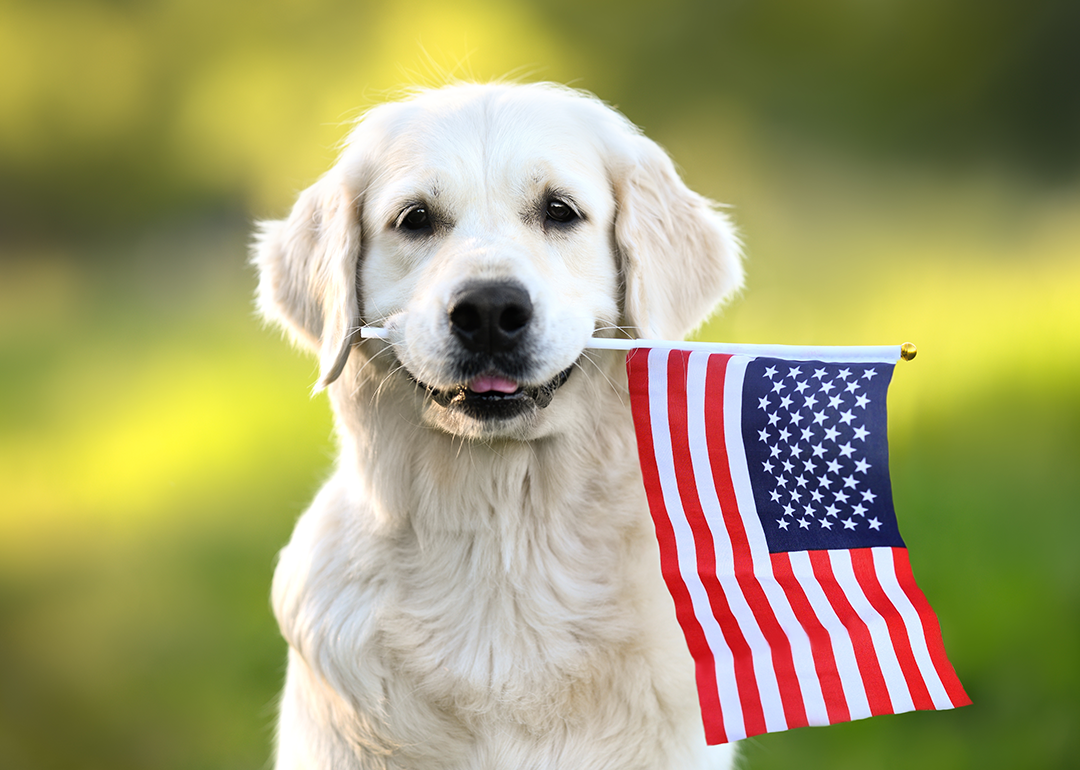
Most popular dog breeds in the US and the states where they're #1
This story originally appeared on Ollie and was produced and distributed in partnership with Stacker Studio.
Most popular dog breeds in the US and the states where they're #1
From bags of kibble in the grocery store to modern home sizes, things are getting smaller—and evidently, Americans are starting to look for furry friends that match. Small breeds like terriers and toys have largely dethroned the retrievers that once dominated the most popular breed rankings. This is a continuation of a trend that began in 2022 when the Labrador retriever lost its 31-year-long streak as #1 to the French bulldog, according to the American Kennel Club.
This shift may be partially attributable to the rising costs of pet products and veterinary care since smaller dogs are more economical for tighter budgets. Moreover, as remote work and nomadic living become increasingly more common, smaller dogs may appeal to those looking for pets that require less space and are easier to transport.
In fact, only two sporting dog breeds are the most popular in any American state—and neither is a Labrador retriever. The most popular dog overall represents 4% of all dogs in the country—constituting over 2.3 million out of 58 million households with dogs.
Ollie used data from U.S. News & World Report to further explore which dog breeds are the most popular in which states and what factors may drive residents' preferences.
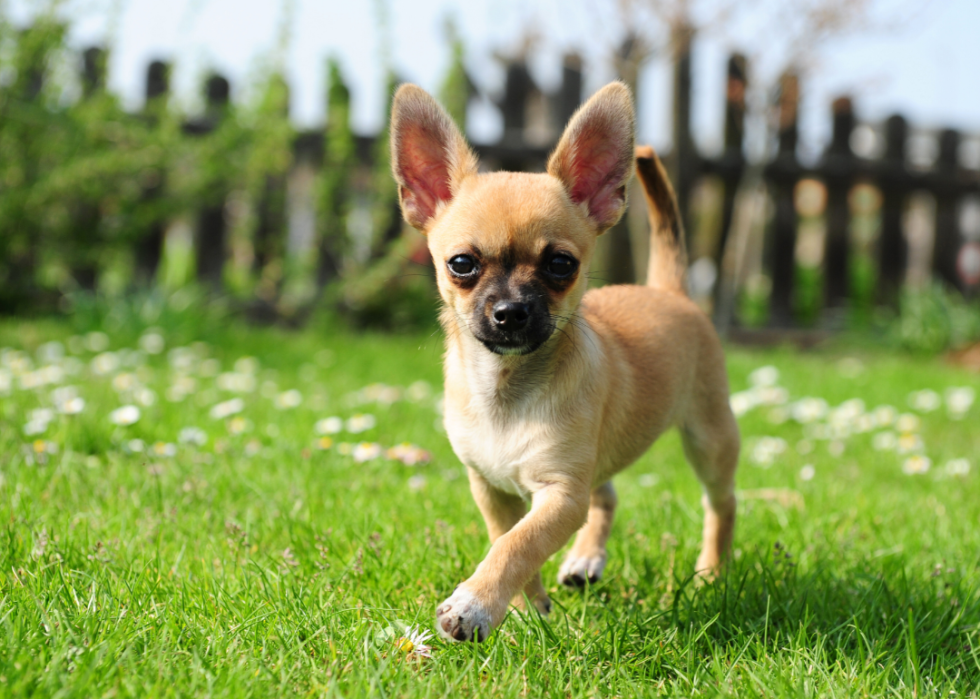
Chihuahua
Named after the northern Mexican state from which it originates, the Chihuahua is the smallest dog breed and one of the oldest, with a lineage that dates as far back as the ninth century. Today, the breed makes up a remarkable 4% of all dogs in the United States and is the most popular overall in 21 states. It ranks within the top five most common breeds in 42 states in total. Requiring just 200 to 250 calories per day but boasting a lifespan of 14 to 16 years, the Chihuahua offers owners low-cost longevity and is known for its adaptability and amusing personality.

French bulldog
The French bulldog is a compact companion known for being friendly yet quiet, making it suitable for a range of lifestyles and homes. The breed has roots in the English bulldog, which was bred to a smaller size to accompany its working English owners, many of whom were artisans.
As such trades closed amid the Industrial Revolution, these workers and their little bulldogs moved to France, where the breed's popularity began. The French developed a more standardized appearance which was iterated upon in the U.S. to develop the iconic bat ears. The breed has recently seen a massive increase in popularity, with AKC registrations surging by 1,000% between 2012 and 2022. Now, the French bulldog is the most popular dog in Florida, California, and Hawaii and is in the top five most common dogs in nearly half the remaining states.
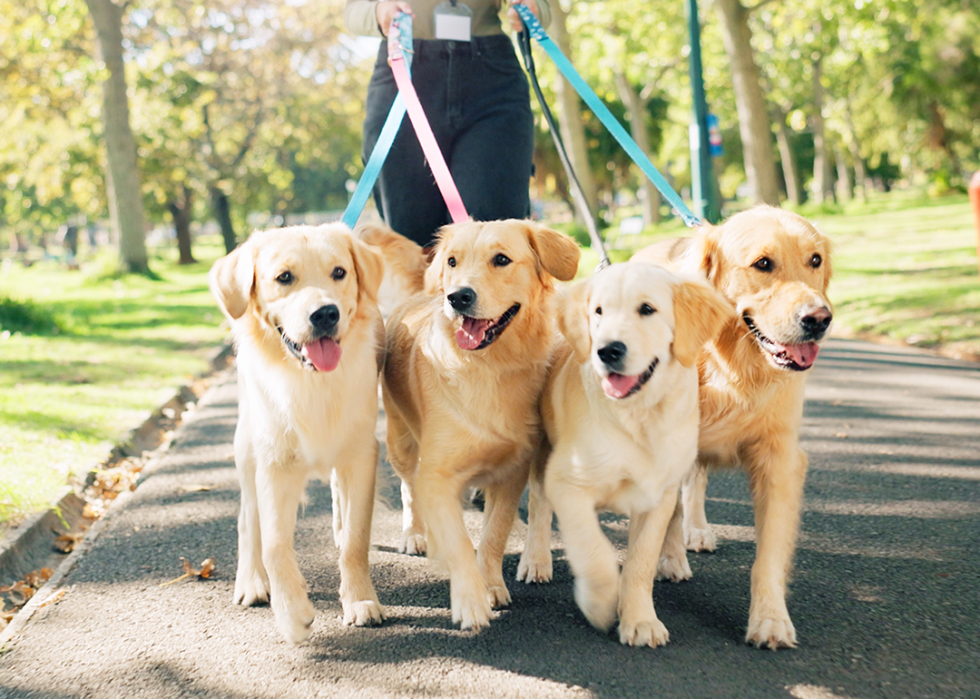
Golden retriever
With webbed paws and an affinity for water, golden retrievers are lucky pups to be the favored breed of the Midwest. They are the most popular dogs in states bordering the Great Lakes—Minnesota, Wisconsin, Michigan, Illinois, and Ohio; the entirety of the New England region minus Rhode Island; plus North Dakota, Nebraska, Colorado, and Virginia.
The iconic golden breed was developed in 19th-century Scotland to retrieve both from land and water during hunts, hence its swimming-related adaptations. Golden retrievers are known for their affectionate nature and eagerness to please, making them well-suited for service and other working dog roles.
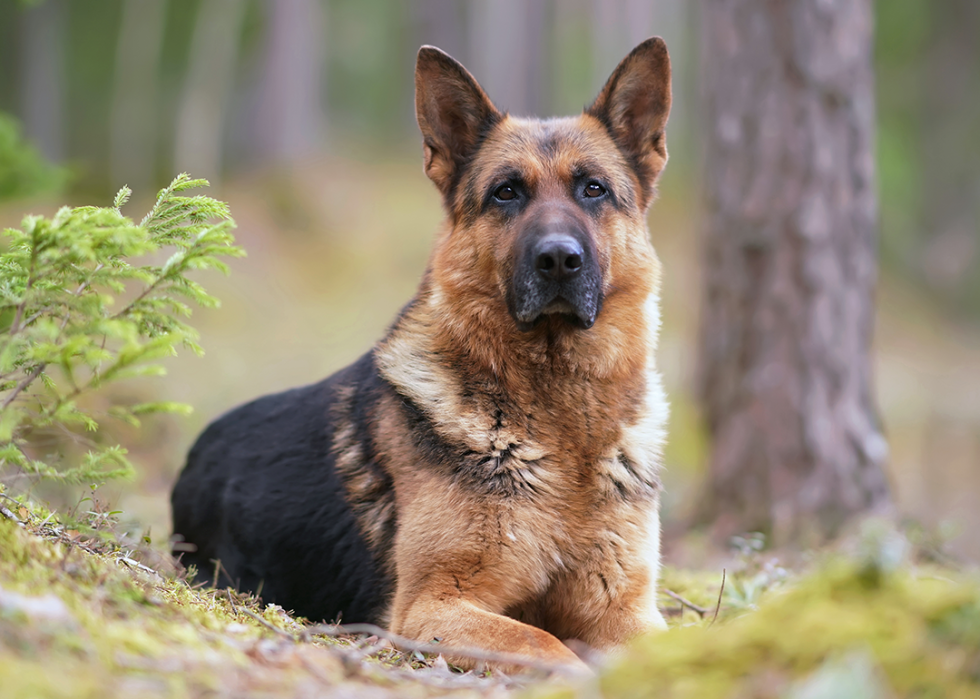
German shepherd
As loyal as they are intelligent, German shepherds are among the favored breeds for guide, military, police, and search and rescue roles. The breed, which first arrived in America in the early 20th century, also enjoys peak popularity in Alaska, Montana, Wyoming, Delaware, and Pennsylvania. Athletic in nature, the breed requires lots of exercise, making them well-suited for homes with or near lots of open land. They are also well-adapted to cold temperatures and harsher climates due to their thick double coats of fur.
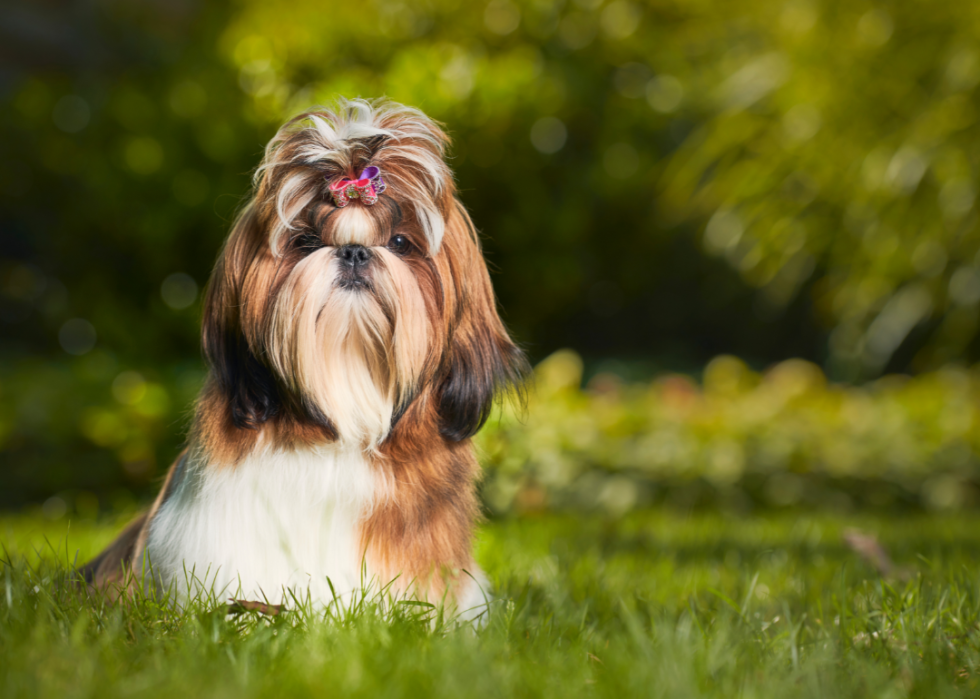
Shih tzu
The shih tzu, whose name means "lion" in Chinese, is king of the Empire State (New York) as well as Iowa, Rhode Island, and New Jersey. Roughly a quarter of New York state residents live in apartments, making the dog that averages 9 to 16 pounds perfect for compact households. Despite being known for its playfulness, the breed does not require much physical activity or space. The breed dates back over 1,000 years but was first brought to America surprisingly recently, following World War II. According to the American Kennel Club, every shih tzu alive today has direct lineage to just 14 shih tzus that were saved when the breed nearly went extinct during the Communist revolution.
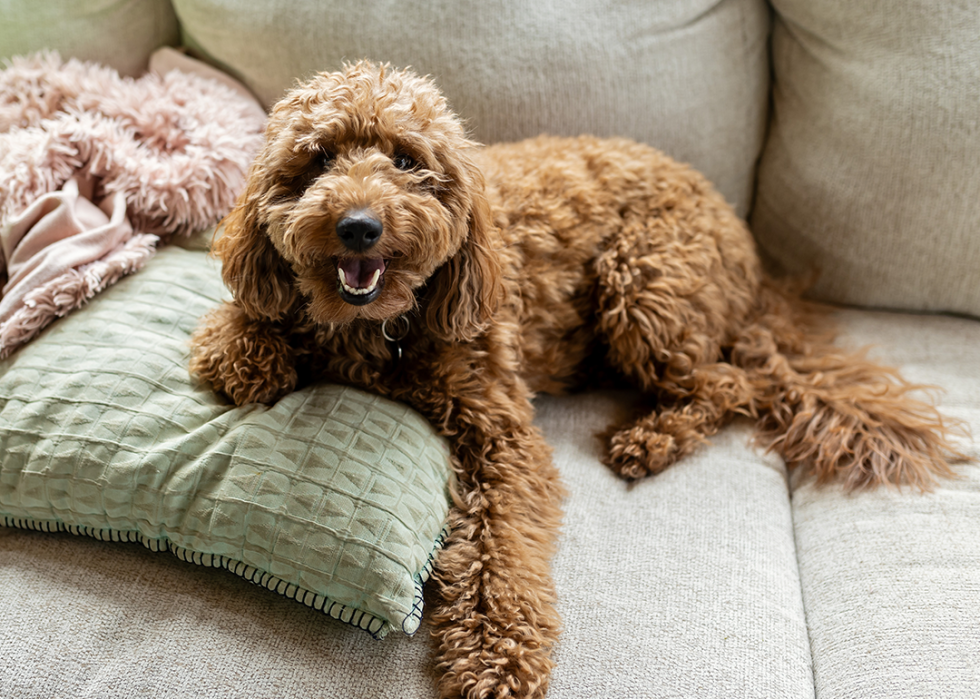
Goldendoodle
Representing the best of both worlds, the golden retriever and poodle hybrid is known for its friendly, sociable demeanor and trainability. Bred to be guide dogs in the 1960s, the hybrid is not recognized as an official breed by the AKC, so there is no breed standard. Goldendoodles can thus range from mini-sized to about 90 pounds and may have fur that is curly, straight, or somewhere in between. While not official, the family-friendly dog has left paw prints all over the country, ranking in the top five most popular dogs in 37 states. In Idaho and Utah, the goldendoodle is the most popular overall.

Yorkshire terrier
Maxing out at just 7 pounds, the Yorkshire terrier is the most popular breed among Maryland and Washington D.C. residents. This is not necessarily surprising considering the housing stock of the nation's capital is comprised mostly of apartment units, making the pint-sized pup perfect for metropolitans. The toy breed was bred to chase rats out of mines and mills in 19th-century England, arriving in North America in the 1870s and gaining official recognition by the AKC in 1885. Now, the breed is among the top five most common dogs in 26 states. The breed is a true terrier at heart, known for its feisty yet affectionate nature.'
Additional research by Eliza Siegel. Story editing by Carren Jao. Additional editing by Kelly Glass. Copy editing by Tim Bruns.



